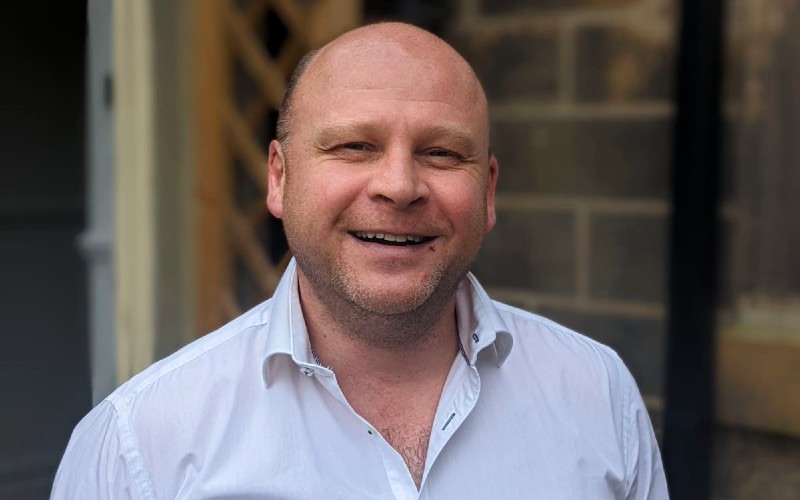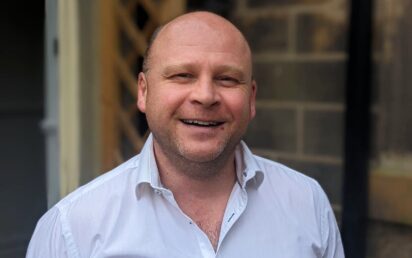You have a great idea for a startup and are ready to execute.
However your targets, especially in financial terms, may need some adjustment if you are to hit them, says CheckedSafe entrepreneur Darran Harris.
Harris, a qualified solicitor, co-founded the business with transport consultant Gary Hawthorne in 2014 – but they would not take a penny out of CheckedSafe for four years as they continued working on their own businesses.
“When we first started, everybody said it would take twice as long as we expected to start making proper money out of it. In my naivety, I thought that was ridiculous,” Harris tells TechBlast. “I thought that once I got my teeth into the business, with my force of will [we would fly].
“But actually, what they said turned out to be true. So I would say to anybody starting a business that when you’re doing a business plan, always build in that leakage – because it will take you longer than you think.”
Hurdles
He explains: “It’s not always just about what you do, but others too: we went live with Network Rail in January, which is amazing for our business, but I worked on that deal for more than two years. There can be so many hurdles.
“With smaller companies, the decision-making is a lot slicker. The bigger you go, you get procurement involved; accountancy; tech people; cybersecurity. And everybody needs educating on why they should use you and why it’s worth the cost.”
CheckedSafe, based in Burnley, Lancashire, is a SaaS platform which harnesses the convenience of smartphones – and the tech within them – to replace cumbersome and archaic paper-based checklists.
The compliance solution was fifth on our sister publication BusinessCloud’s RegTech 50 ranking last year. Transport was the initial focus of the company due to the legal requirement for daily checks on commercial vehicles, while it is now targeting other sectors such as general health and safety compliance – specifically dynamic risk assessments, auditing and general record keeping.
“It’s nice to get a 500-vehicle fleet, but you will work four or five times as hard as a 10-vehicle fleet. It’s a real balance,” says Harris, who advises that startups take care to look after their customers.
Resources
Harris, who eventually sold his solicitors’ practice in 2017, advises fellow founders to ensure they have the resources to execute their vision. “Gary and I were lucky in that we had other income to allow us to build CheckedSafe,” he says.
“If you expect to be able to manage without income, say, for two years, then by year three you still can’t draw a salary, what are you going to do?”
CheckedSafe now has around 850 paying clients – managing 7,500 depots and just under 100,000 assets – with more than 170,000 users following Network Rail’s nationwide deployment of the tech. Further clients include Amey, Kier, Balfour Beatty, Manchester Airport, HS2, The RAC, Northgate and Hitachi.
The idea for the business came when Harris, who represented Hawthorne during the sale of his transport company Maytree, and his future co-founder represented a customer called to a public inquiry.
“This was a company that turned over £2m a year but wasn’t carrying out proper checks on vehicles and managing things properly. It was at risk of losing its licence [which would have sunk the business],” says Harris.
“As I sat there being b******ed by the Traffic Commissioner, I thought: ‘this is daft – everybody moans about compliance and nobody gets it right’.”
Integrity
Honesty is the best policy – whatever the temptation placed in front of you, says Harris.
“Gary and I went to see a huge bus company in London and did a demo of CheckedSafe for them,” he offers as an example. “On a bus check you might have, say, 15 questions. In front of his MD, one of the transport managers said: ‘We don’t want all these questions – we only want four.’
“I said I didn’t follow, and he replied: ‘Well, we don’t want to invite problems.’
“I said: ‘Hang on a minute – so you’re saying to me that you don’t want to ask a driver if the indicators are working because, if they’re not, you don’t want him to report it? You do realise that this is an operator licence issue?’ And he said: ‘Well, one of your competitors will do it.’
“I told him they would have to go with the competitor because we wouldn’t do it. This deal was probably five years ago and worth £300,000 a year to us – we could really have done with the leg up from that… but we walked away.
“Integrity is important to me. Because whatever we do, we want to be honest with people.”


